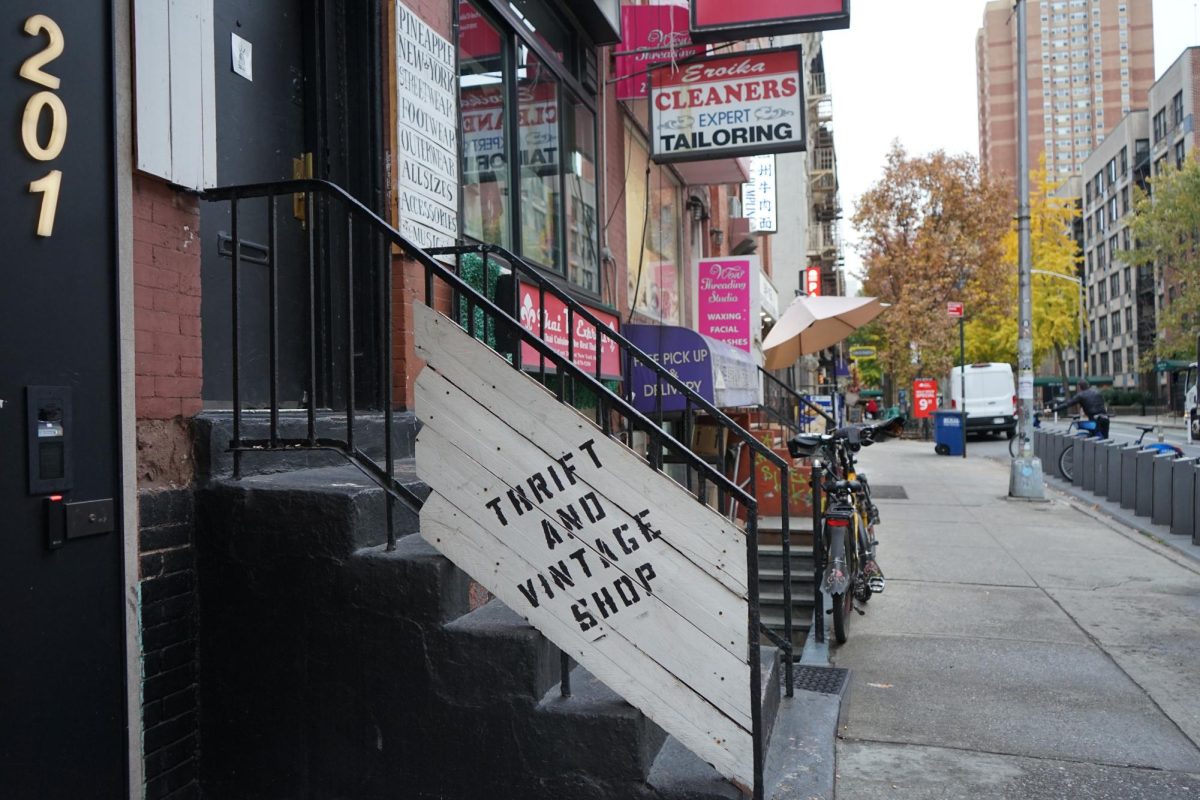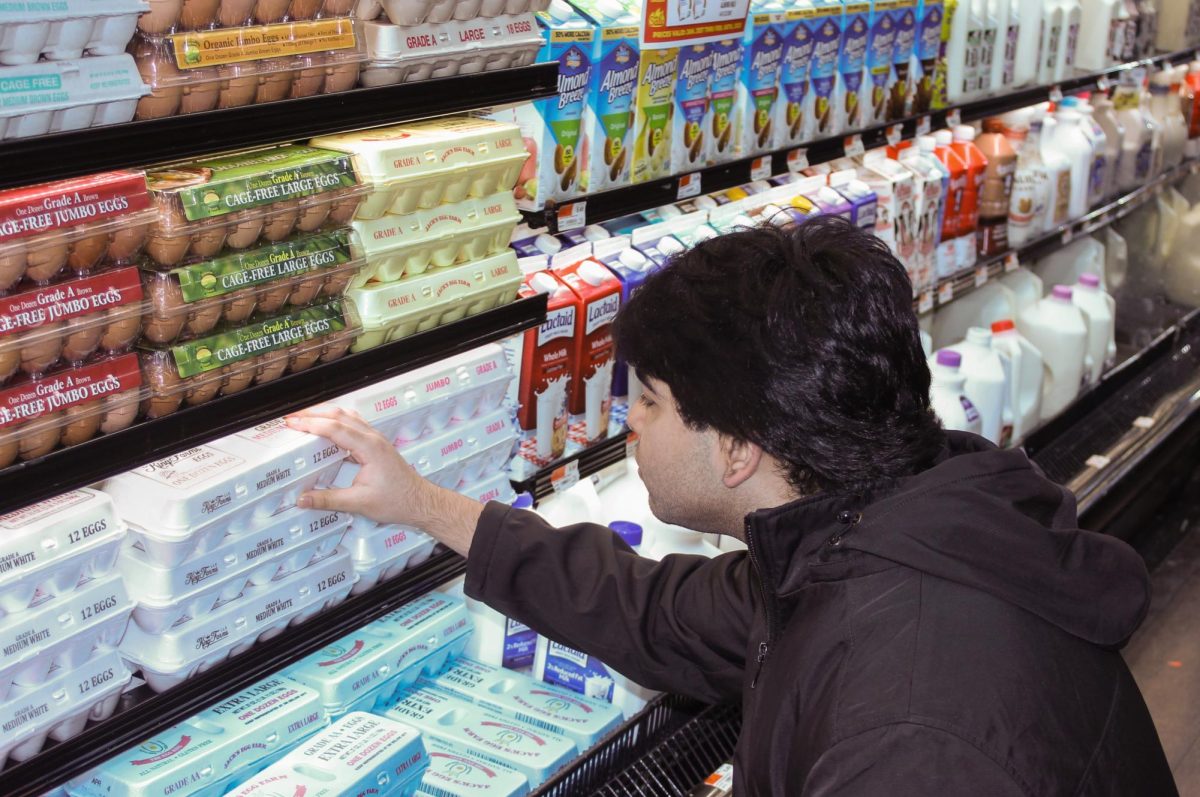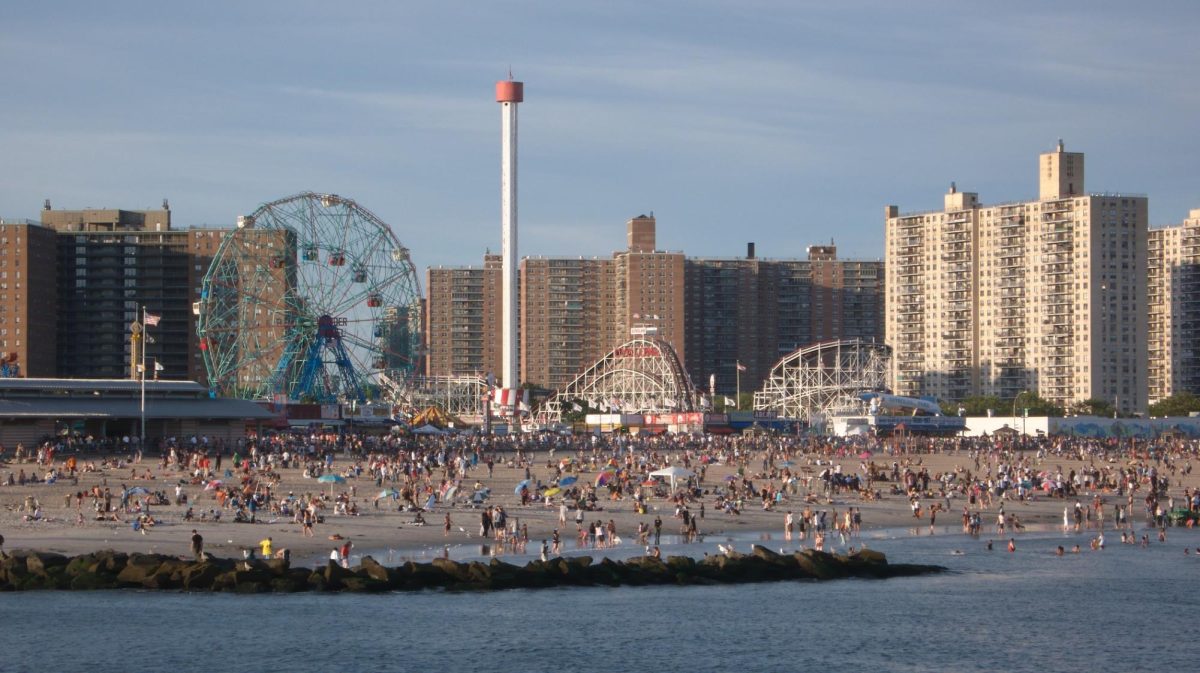Three years ago, Irish Cardill opened his small vintage shop, Pineapple, in the fashion capital of the world: New York City. In a city booming in street style, he planned to create a fashion brand that embodies the city’s streetwear spirit.
Since opening, Cardill said that his biggest struggle has been with inconsistent customer traffic, inflation, customers’ reluctance to buy new clothes and opting to save their money for more adventurous expenses instead.
“People are not spending money,” Cardill said. “You leave the house, the money is getting ripped out of your hand.”
To help small businesses like Cardill’s, The American Express Co. launched Small Business Saturday, celebrated the Saturday after Thanksgiving to promote buying from small businesses. Ever since the marketing initiative launched 14 years ago, it has reached an estimated spending of $201 billion as of 2023. But even though the initiative was to enable shoppers to shop small, not all local businesses have profited.
While shopping small has seemed to increase over the years, only 36% of Americans shopped small in 2023, compared to 68% of Americans who shopped online on Black Friday. Eight in 10 small businesses rely on holiday sales to meet annual profit goals, and 26% of them said they would increase prices, according to the Small Business Index.
Some small business owners are on edge with President-elect Donald Trump’s claims on raising tariffs for foreign goods. Cardill explained that “the beauty of this business is there’s no tariffs for trade, because the clothes are already here.” Yet not all small businesses have that luxury. Twenty-three percent of small businesses reported that they mostly struggled with inflation. While owners are reluctant to raise prices, they do it only when they feel as though they have no choice.
Stephen Shea, partial owner of Gramercy Ale House, says that in the next month he will need to raise prices due to inflation. “People don’t realize it’s not just the cost of the product, it’s everything else that goes into it,” Shea said.
Shea’s brother-in-law, Andrew Sheridan, opened Gramercy Ale House 10 years ago, when Shea first came in as an investor. But five years later his share grew — and so did his position. Becoming more involved, Shea grew to enjoy the chaos that running a small business comes with. “Every day there’s a crisis, on Tuesday the water heater breaks down, on Wednesday the cook doesn’t show up, on Thursday the bartender got drunk and can’t work,” he said.
While being only five blocks down from Cardill’s shop, they both have a different flow of foot traffic. Cardill sees inconsistency, but Shea already has the locals down and tourists at sky high during the wintertime. Shea thanked Rolf’s German Restaurant for the heavy foot traffic in the neighborhood during the holidays. Rolf’s is known for its elaborate Christmas decorations during the holiday season. Shea’s slow season is during the summer, when most locals leave the area for vacation.
The Gramercy and Kips Bay area, paired with its close proximity to Baruch College’s Clivner-Field Plaza, has made Jimmy’s House prosper so much that the owner, Jimmy Mu, rented out a small place right next door to his kids, where they opened matcha store MuCha. MuCha is a play on words, combining their family name and matcha. The brother-and-sister duo left their corporate jobs to expand on this new business journey.
Andy Mu, partial owner, serves Baruch students and locals in the neighborhood, just like his father has done for over 25 years, yet his biggest struggle is marketing. Mu shared that the hardest part has been “marketing, because people don’t really know that we’re here yet.”
While MuCha and Gramercy Ale House don’t plan on leaving any time soon, Cardill is ready to take Pineapple to the west side, where he believes it will attract more foot traffic. Cardill said that he has been trying to diversify his business to attract a bigger crowd. On Fridays, he makes a customer appreciation show, with a purchase of a $15 T-shirt.
“You have to diversify now,” he said. “People are going out very selectively, which is partially why I want to add shows.”
Cardill has helped create the t-shirts on the second floor of his shop, which changes every week to the band’s logo performing that Friday. He says that there are over 800 of his shirts floating around.
While some small businesses are soaring in the neighborhood, others need a change of scenery or a better marketing plan, especially as the holidays get closer. But that doesn’t stop out-of-staters from coming in and trying to work on their dream business.
“New York has always been a harbor for people starting their journey,” Shea said.















